Educational lectures
Rudolf Gusztin's lecture in the congregation of the Hungarian Evangelical Brotherhood in Szeged
On May 13, 2022, within the framework of the Visegrad Grant project "Towards a common regional history of our nation building strategies. Traveling directors, musicians", Rudolf Gusztin from our department gave another lecture Music and Politics. Case studies from the 19th and 20th century Hungarian music history at the congregation of the Hungarian Evangelical Brotherhood in Szeged. Participants heard about both the 19th century choral movement and the Kádár era's relationship with jazz during the hour-long lecture.
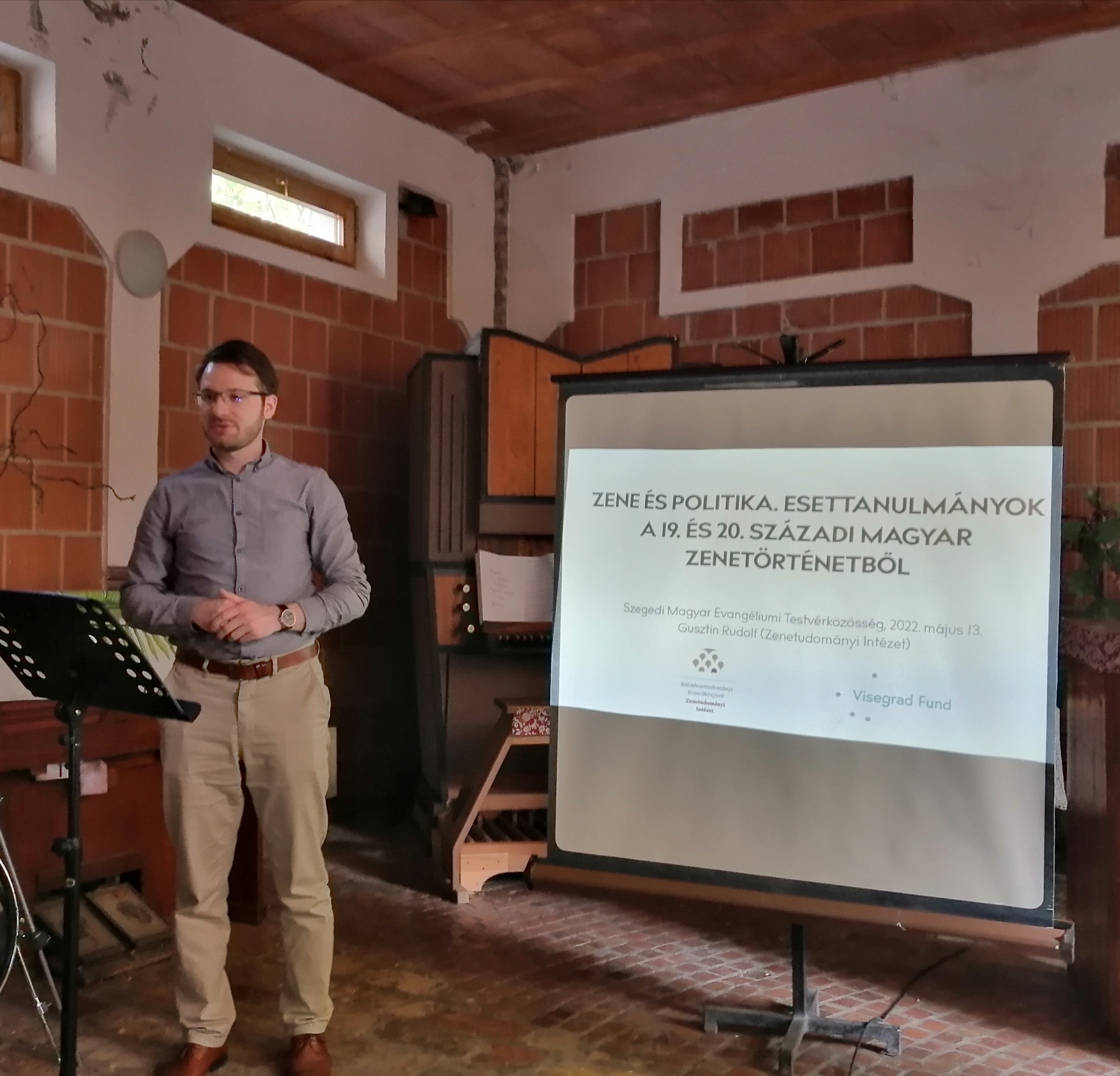
Two lectures by Pál Horváth
On May 12, 2022, a concert was organized in the Ötpacsirta Szalon of The Metropolitan Ervin Szabó Library Music Collection in honour of Franz Doppler, who was born 200 years ago in 2021.
Pál Horváth gave a lecture at this concert within the framework of the Visegrad Grant project "Towards a common regional history of our nation building strategies. Traveling directors, musicians".
Franz Doppler was an important figure in the musical life of 19th-century Pest. He worked for two decades as a conductor, composer and flutist at the Pest National Theatre, before becoming a ballet conductor in Vienna.
On May 13, 2022, a concert was organized in the Weiner Hall of the Leó Weiner Catholic School of Music and Musical Arts Secondary School in honour of Franz Doppler, who was born 200 years ago in 2021.
Pál Horváth gave a lecture at this concert within the framework of the Visegrad Grant project "Towards a common regional history of our nation building strategies. Traveling directors, musicians".
Franz Doppler was an important figure in the musical life of 19th-century Pest. He worked for two decades as a conductor, composer and flutist at the Pest National Theatre, before becoming a ballet conductor in Vienna.
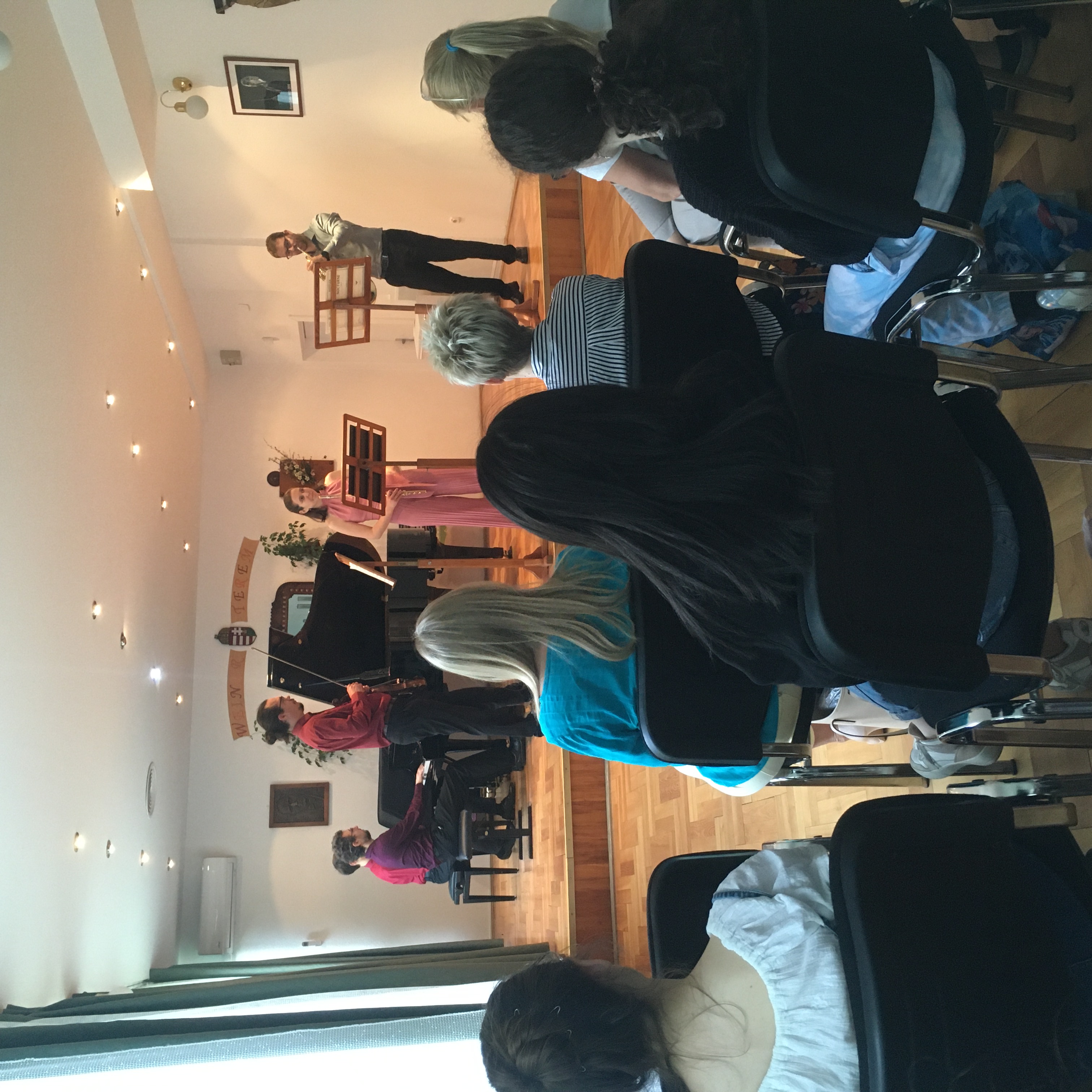
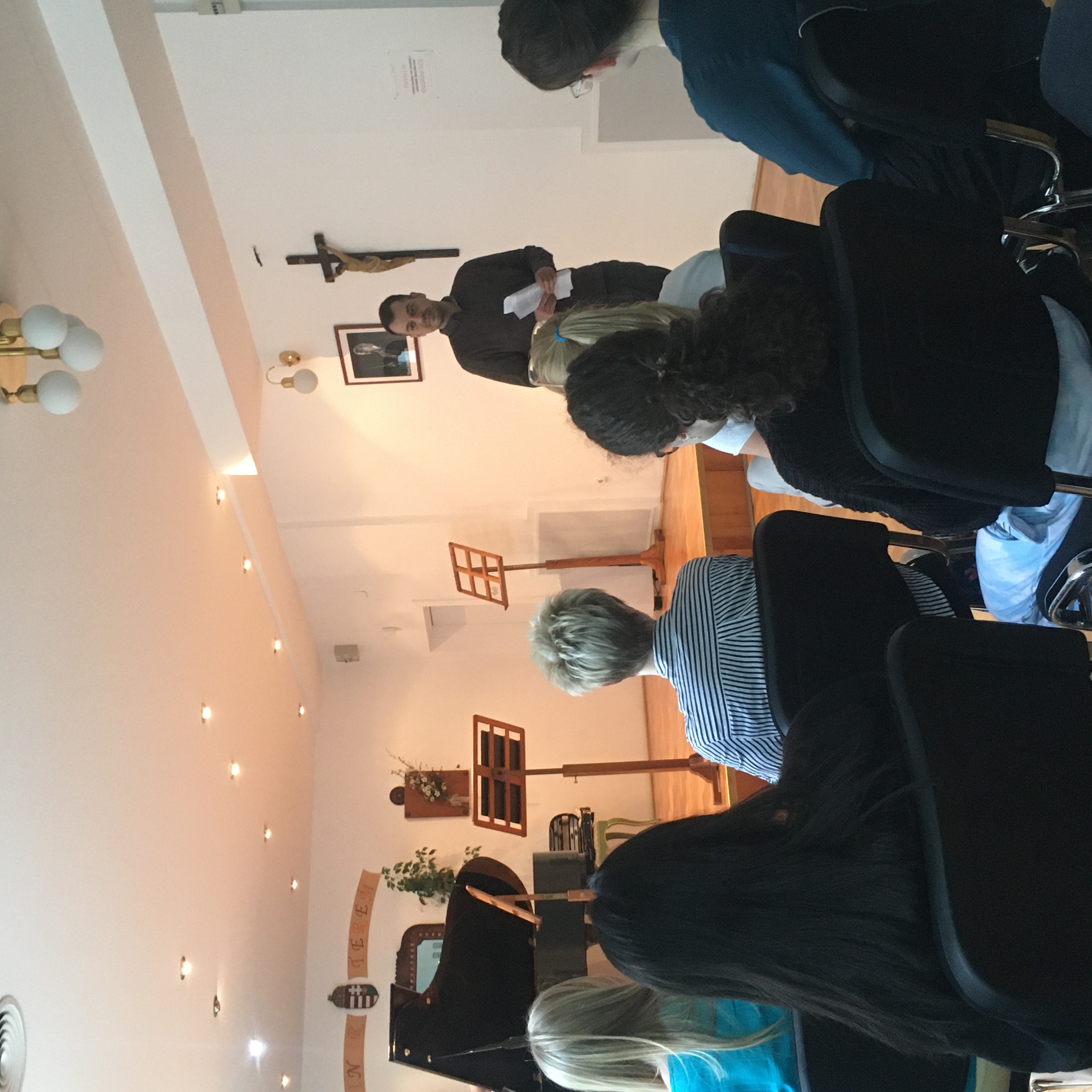
Lecture by Gusztin Rudolf
On May 5, 2022, within the framework of the Visegrad Grant project "Towards a common regional history of our nation building strategies. Traveling directors, musicians", Rudolf Gusztin, a member of our department, presented a lecture "Music and Politics. Case studies from the 19th and 20th century Hungarian music history". Our colleague gave the lecture to students of the Music Department of the University of Debrecen. The topic covered both the 19th century choral movement and the Kádár era's relationship with jazz.
Although all political regimes have the possibility to use music, it is a particularly important tool for authoritarian and dictatorial regimes, which emphasise the ideological re-education of the people. Censorship, police surveillance, subpoenas - key words that are characteristic of both the 19th and 20th century authoritarian periods in Hungary. The relationship between power and culture will be explored through two case studies, the Hungarian choral movement in the 19th century and the early history of jazz in Hungary in the 20th century.
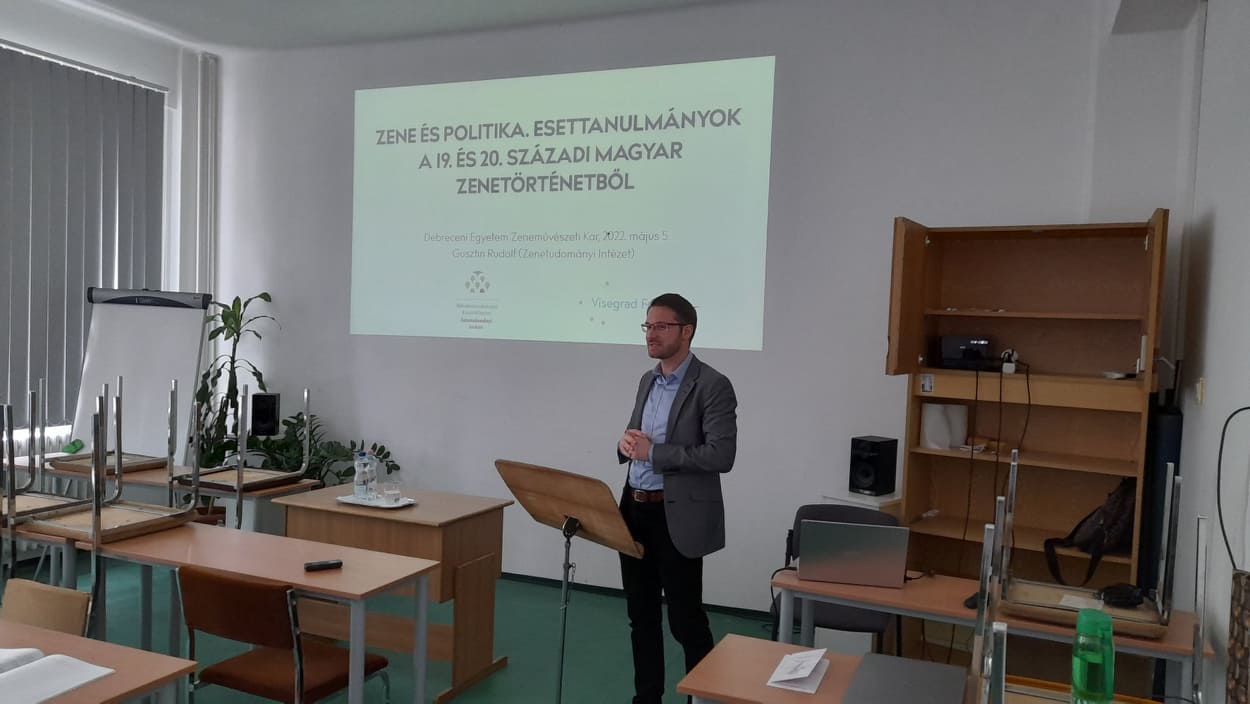
Lecture by Pál Horváth
On April 21, 2022, a concert was organized in the Ferencsik Hall of the Béla Bartók Music Secondary School in honour of Franz Doppler, who was born 200 years ago in 2021.
Pál Horváth gave a lecture at this concert within the framework of the Visegrad Grant project "Towards a common regional history of our nation building strategies. Traveling directors, musicians".
Franz Doppler was an important figure in the musical life of 19th-century Pest. He worked for two decades as a conductor, composer and flutist at the Pest National Theatre, before becoming a ballet conductor in Vienna.
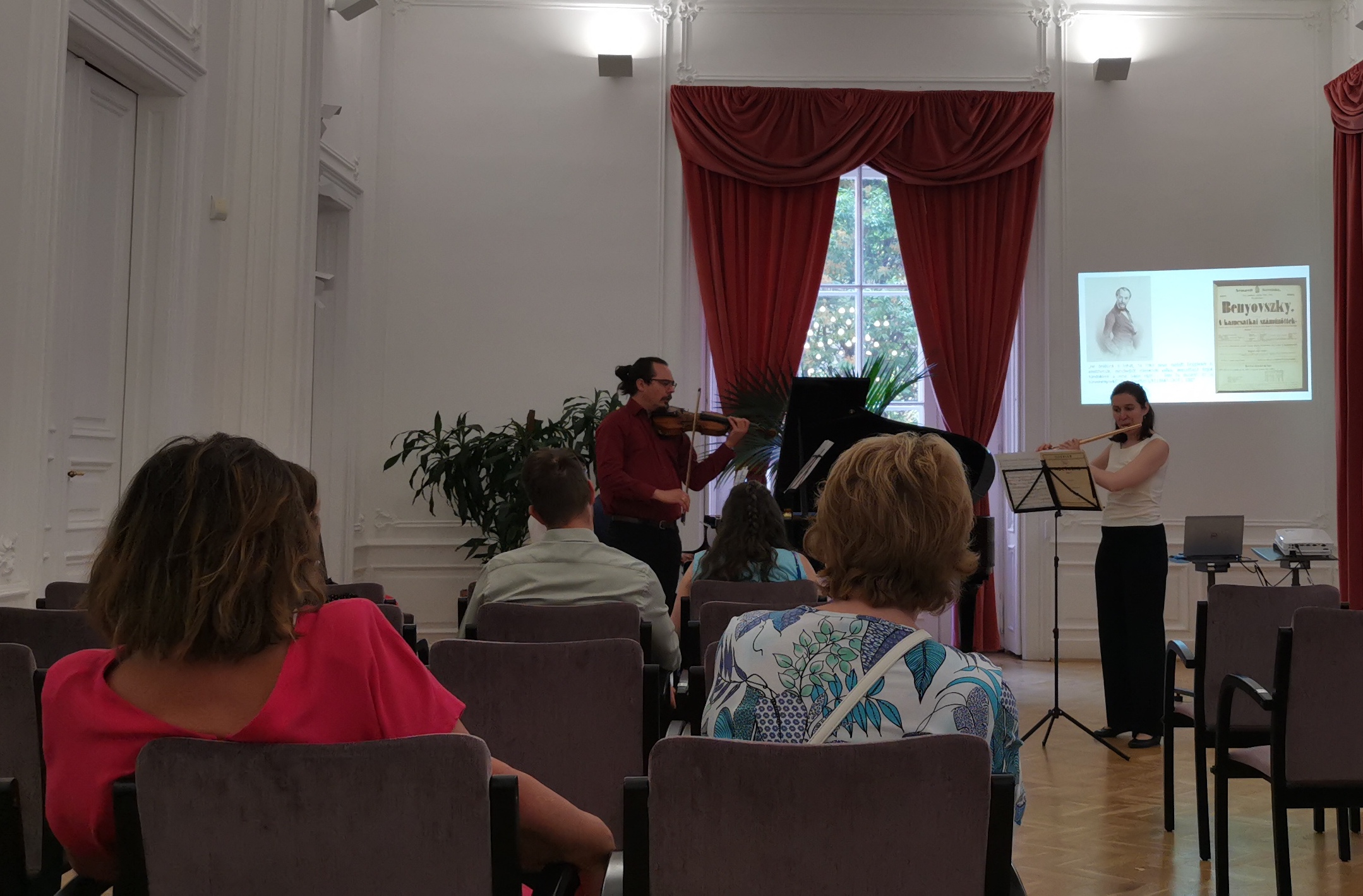
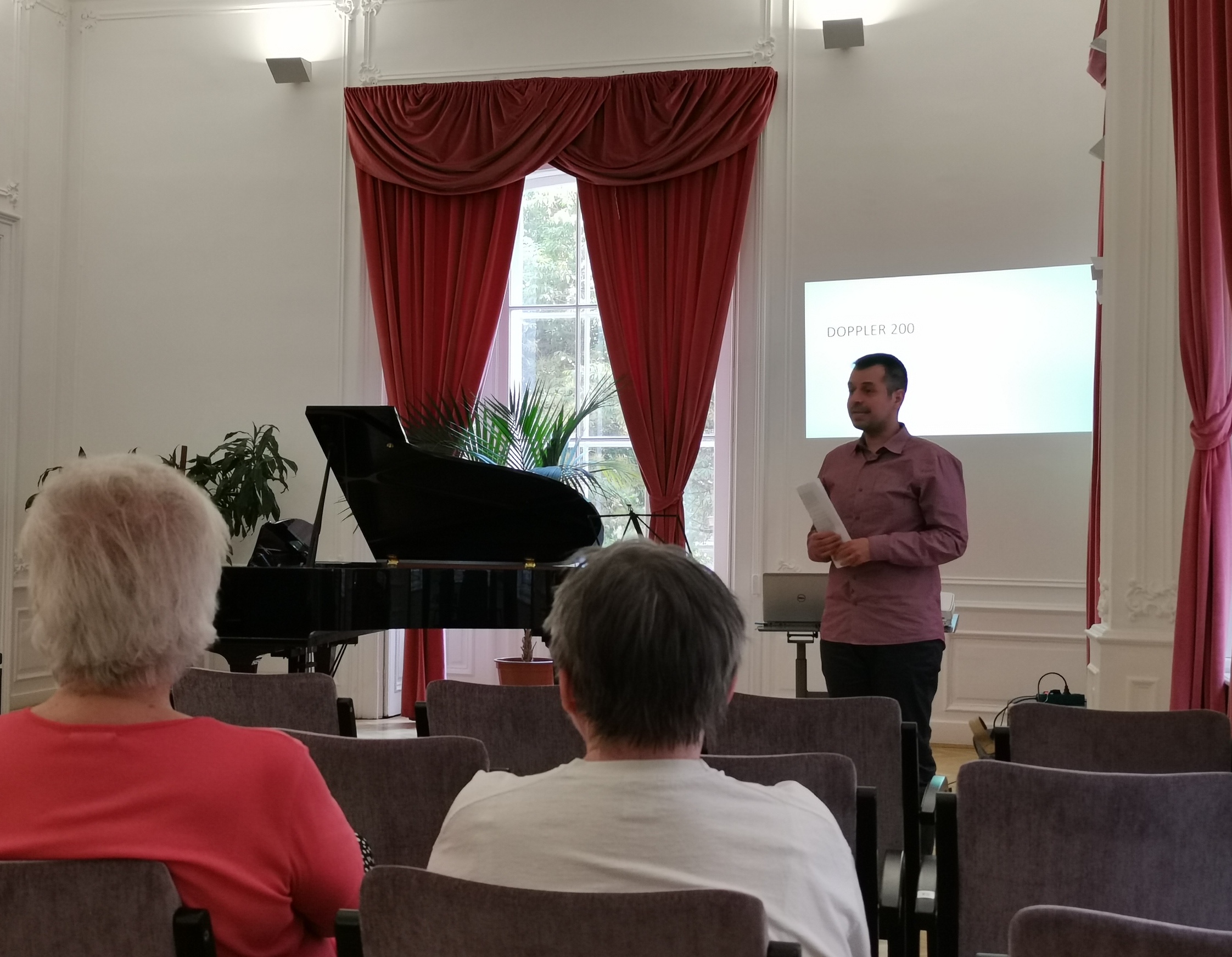
Three lectures by Emese Tóth
Emese Tóth, a member of our department, gave three guest lectures on music iconography and music history to the students of the Károli Gáspár University of the Reformed Church, MA in Netherlandistics, within the Music Culture and Literature course of the University. One of them was the lecture "The career of opera singer József Ellinger with Dutch aspects", which was held on 23 March 2022, concerning the topic of Visegrad Grants 2020-2022 Towards a common regional history of our nation building strategies. Traveling directors, musicians.
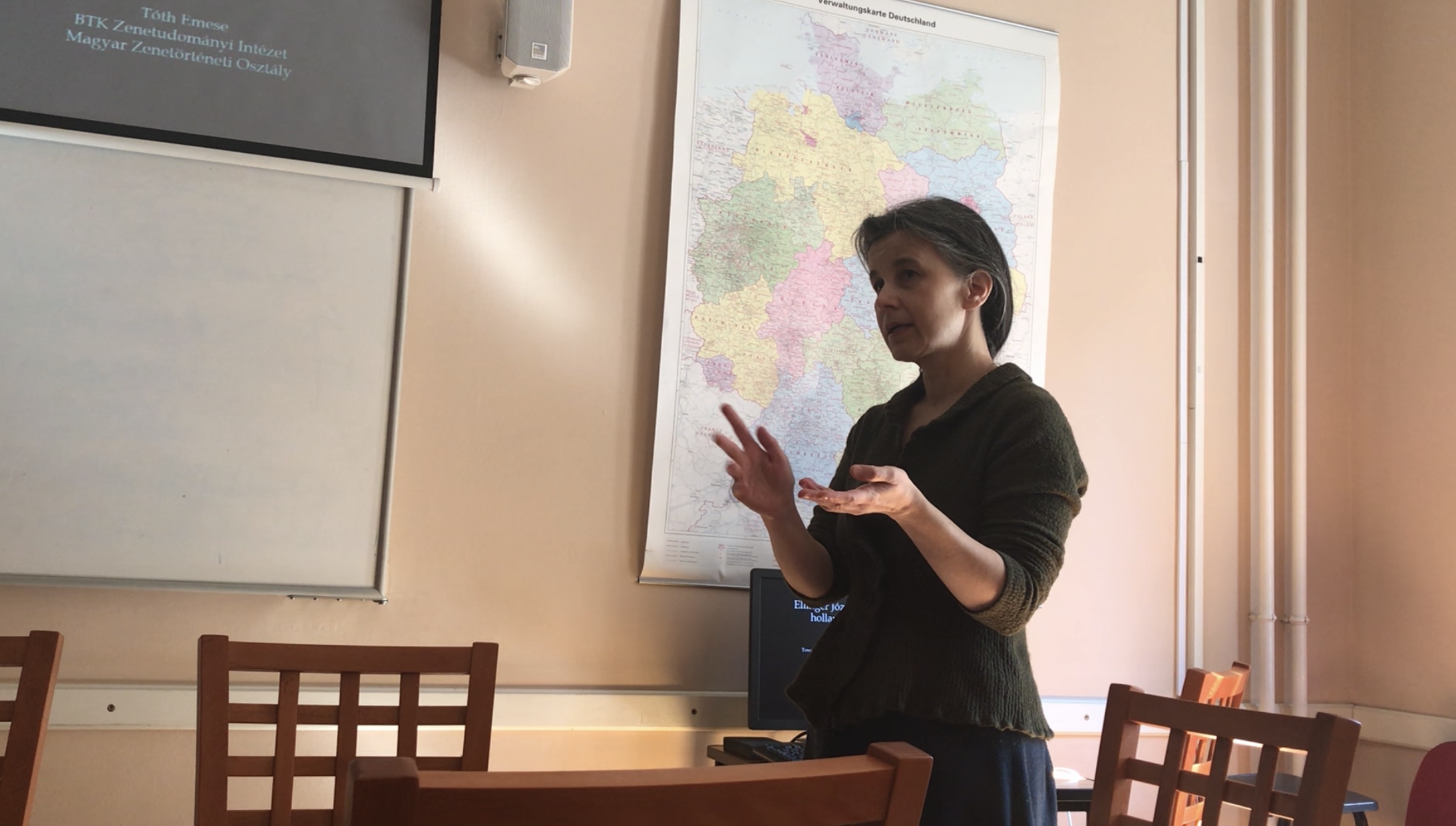
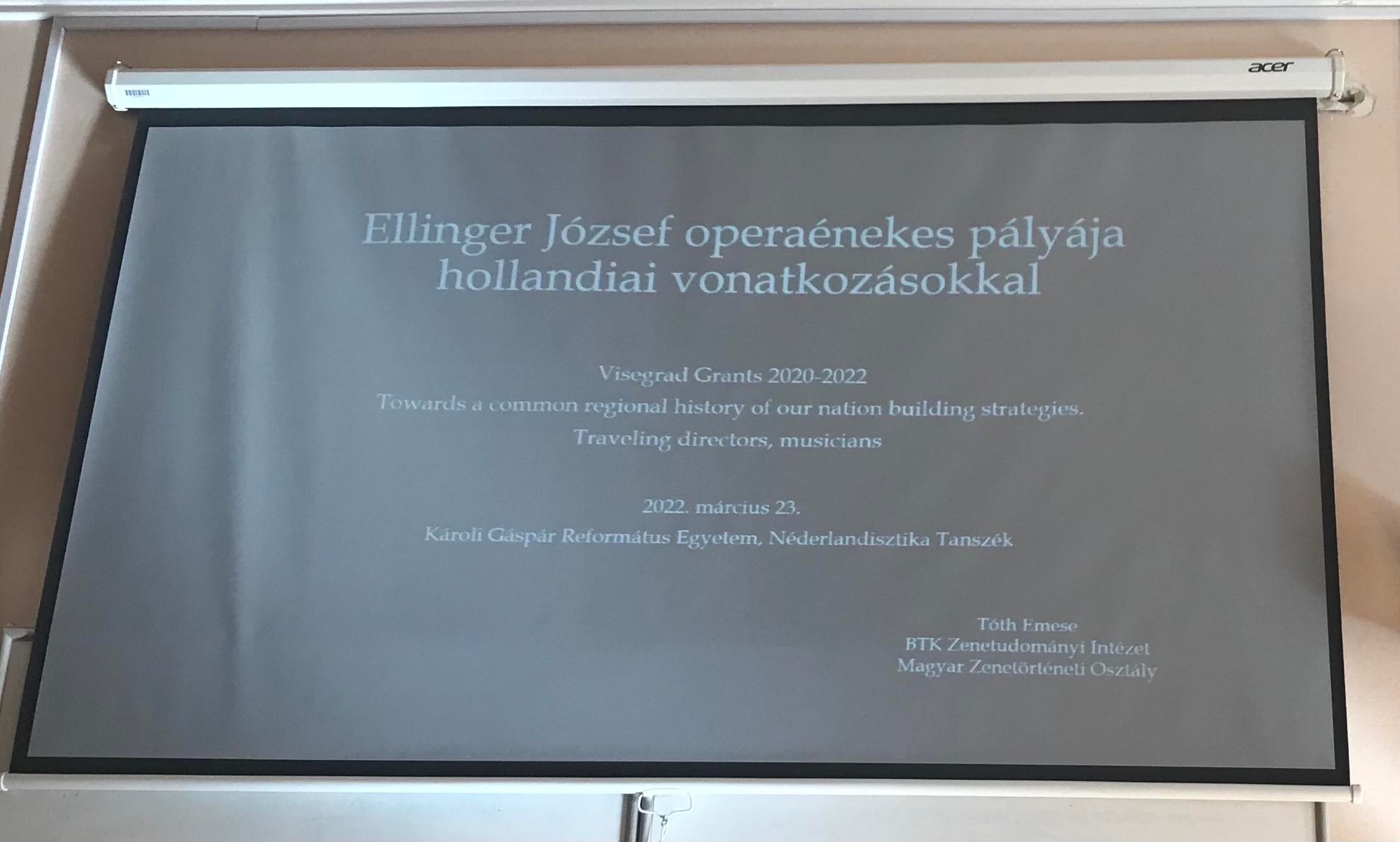
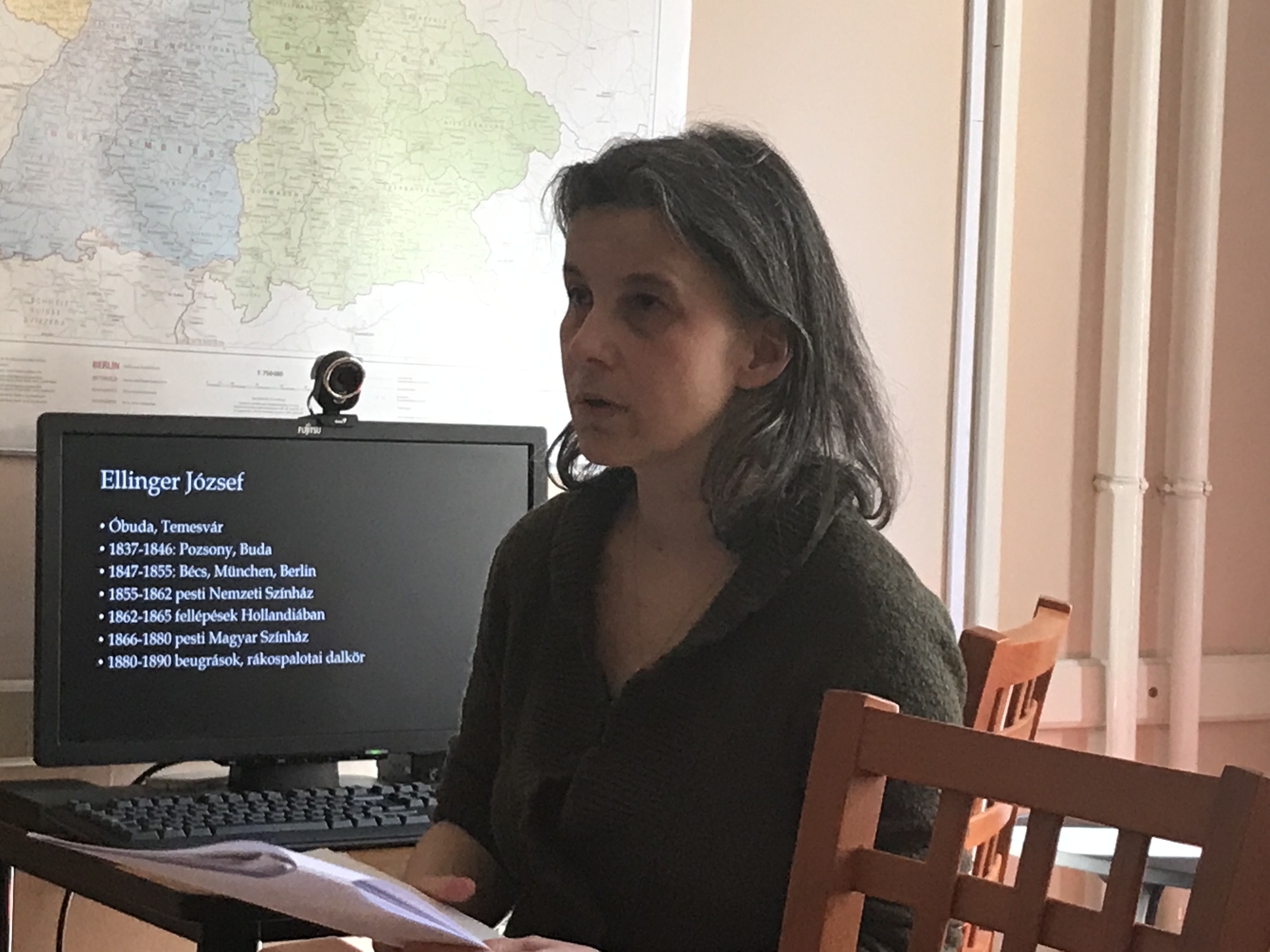
Two lecture by Jiří Kopecký and Lenka Křupková
In autumn 2021, the Department of Musicology, Faculty of Arts, University of Olomouc held two lectures in the framework of the Visegrad Grant Project 2020-2021 - Towards a common regional history of our nation building strategies Travelling directors, musicians. The first event was a lecture by Jiří Kopecký, PhDr., Ph.D., doc. on 12 October 2021, entitled Proměny operního repertoáru v dlouhém 19. století (Changes of opera repertoire in the long 19th century). The second lecture - Obraz publika Městského divadla v Olomouci (The Image of the Audience of the Municipal Theatre in Olomouc) - on 25 October 2021, was given by Lenka Křupková, PhDr., Ph.D., doc. The content of the presentations was as follows:
Changes of opera repertoire in the long 19th century
On the example of the Olomouc opera scene, it is possible to demonstrate shifts in the opera repertoire, both in the general trends valid for the 19th century opera practice and by the specific conditions of the provincial theater. To a large extent, the opera repertoire was chosen according to the possibilities of the lead singers, especially the excellent prima donna managed to fill the auditorium of the theater throughout the whole season. Sopranos Lukatschy, Pollert and Lucca were such prominent personalities in Olomouc.
The Image of the Audience of the Municipal Theatre in Olomouc
The lecture tries to reconstruct the structure of the audience of the German municipal theatre in Olomouc. It focuses foremost on the period from the seventies of the 19th century until 1920 when the scene was handed over to the Czech administration. It is possible to reconstruct the stratification of the audience in the auditorium of the municipal theatre with the help of information in the contemporary local press, official records of the meetings of the municipal representatives and other documents stored in the Archives of the City of Olomouc, and to characterize its specifics, taste, national collocation and the dynamics of its transformation in the determined period of time.
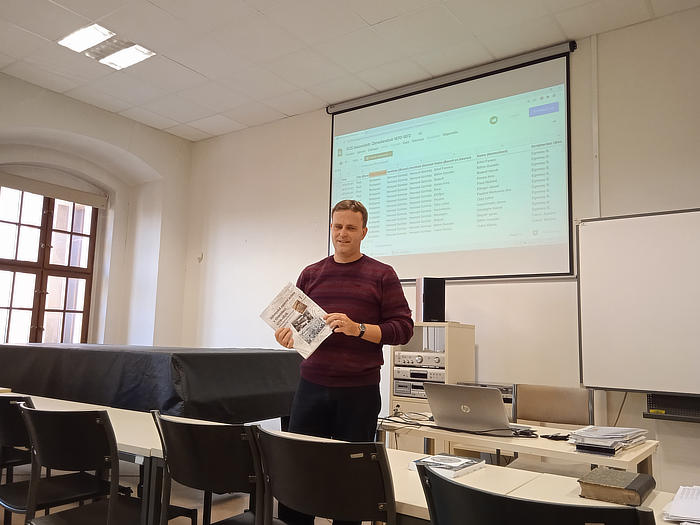
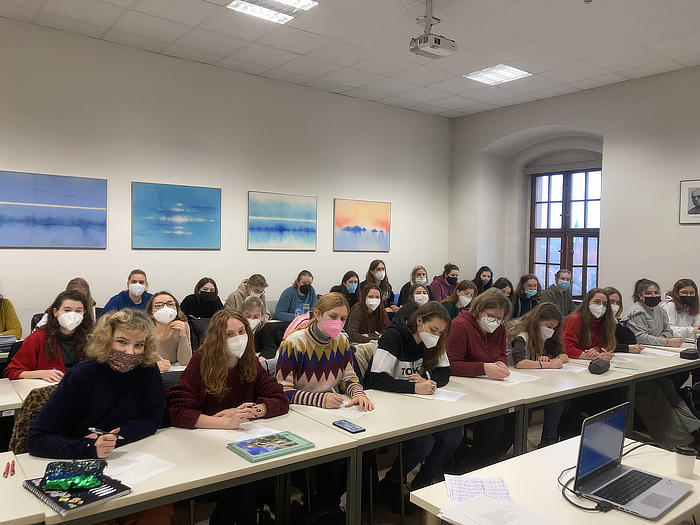
Lecture by Jana Laslavíková in Prague
On Thursday, 30 September, Jana Laslavíková gave a lecture entitled "The Municipal Theatre of Prešpork at the end of the 19th century. Between Province and Metropolis", organised by the Theatre Society and the Czech Theatre Studies Cabinet.
Laslavíková has recently published a monograph on musical theatre in Bratislava entitled Mestské divadlo v Prešporku na sklonku 19. storočia. Medzi provinciou a metropolou (The Municipal Theatre in Pressburg at the end of the 19th century. Between Province and Metropolis). Among the most famous theatre architects within the Austro-Hungarian monarchy were F. Fellner Jr. and H. Helmer. They designed almost fifty theatres, including the Municipal Theatre in Pressburg, known at the time of its foundation as the Városi Színház/Stadttheater (today the HB SND in Bratislava). The new publication shares a complete list of performances in German from 1886-1899, provides the first complete overview of its history, including details of its artistic and technical operation. Despite the intensive Hungarianization of the city of Pressburg since the opening of the Municipal Theatre, the city decided to divide the season into German and Hungarian sections with respective directors and companies, which creates room for questions about the function of theatre in a multiethnic city in a given space and time.
Jana Laslavíková, Ph.D., graduated in musicology at the FIF University of Music in Bratislava and the University of Vienna. She works at the Historical Institute of the Slovak Academy of Sciences, where she researches the theatrical life in Pressburg in the 18th and 19th centuries in the context of cultural, social and historical transformations of the city.
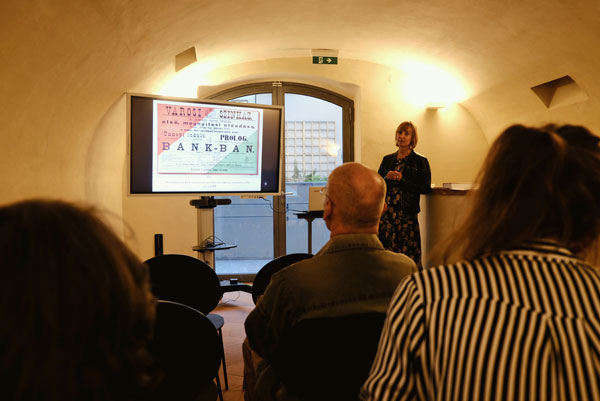
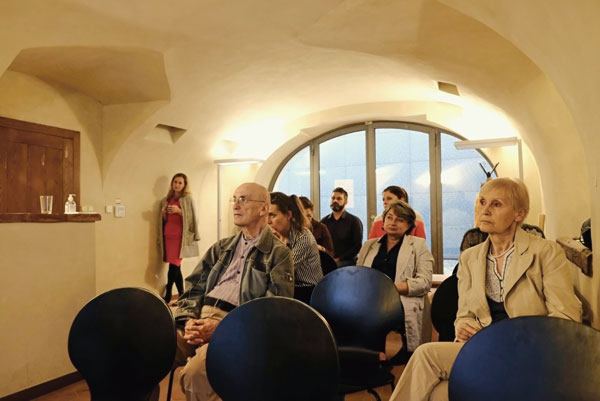
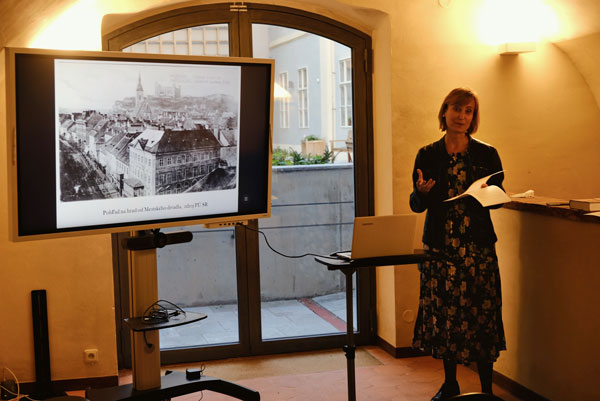
Tomasz Pudłocki's lectures
Professor Tomasz Pudłocki held four lectures at I Liceum Ogólnokształcące im. Króla Władysława Jagiełły w Dębicy (Dębica), at II Liceum Ogólnokształcące im. col. Leopolda Lis-Kula (Rzeszów), at V Liceum Ogólnokształcące im. Augusta Witkowskiego w Krakowie and at Liceum Ogólnokształcącego im. J. Słowackiego. The lectures were devoted to the role of artists in the life of nineteenth-century nations and their influence on independence aspirations and the sense of national identity.
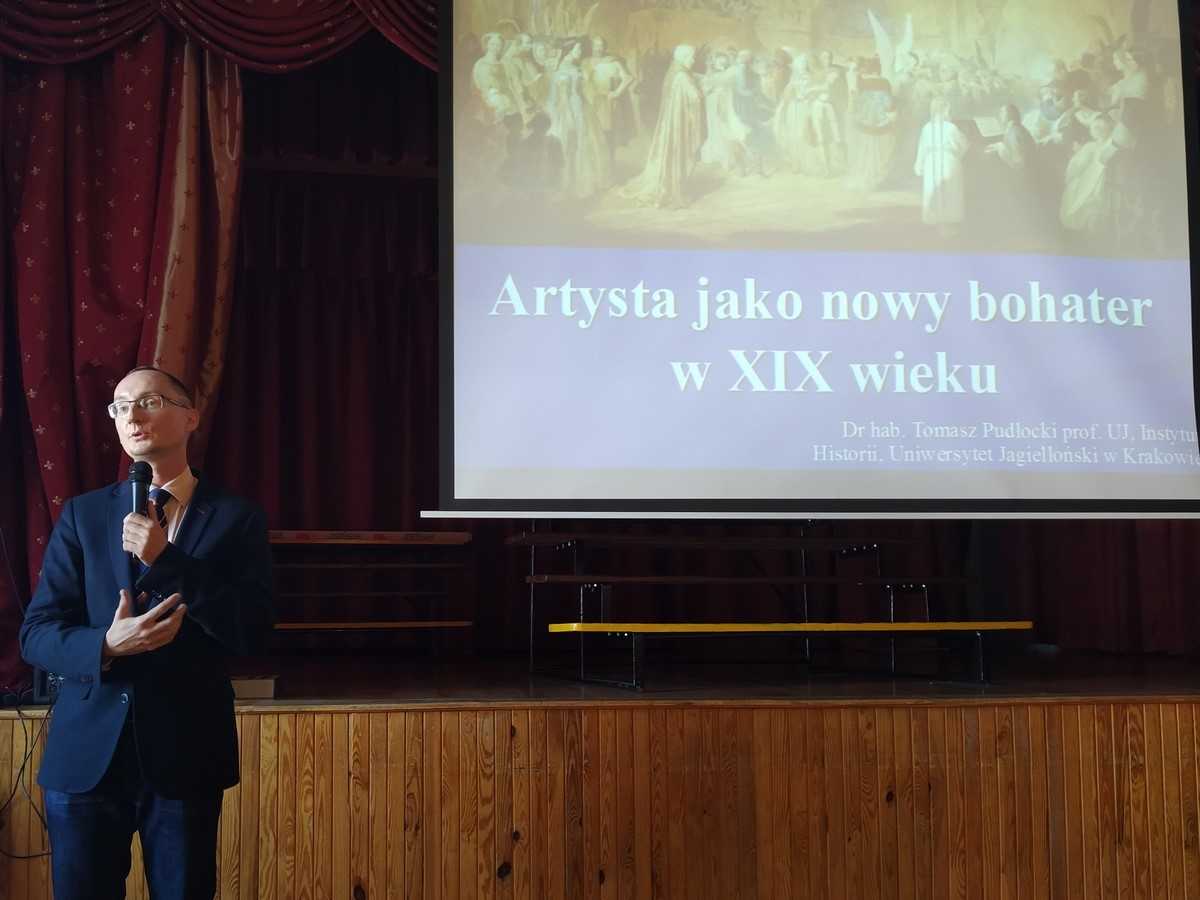
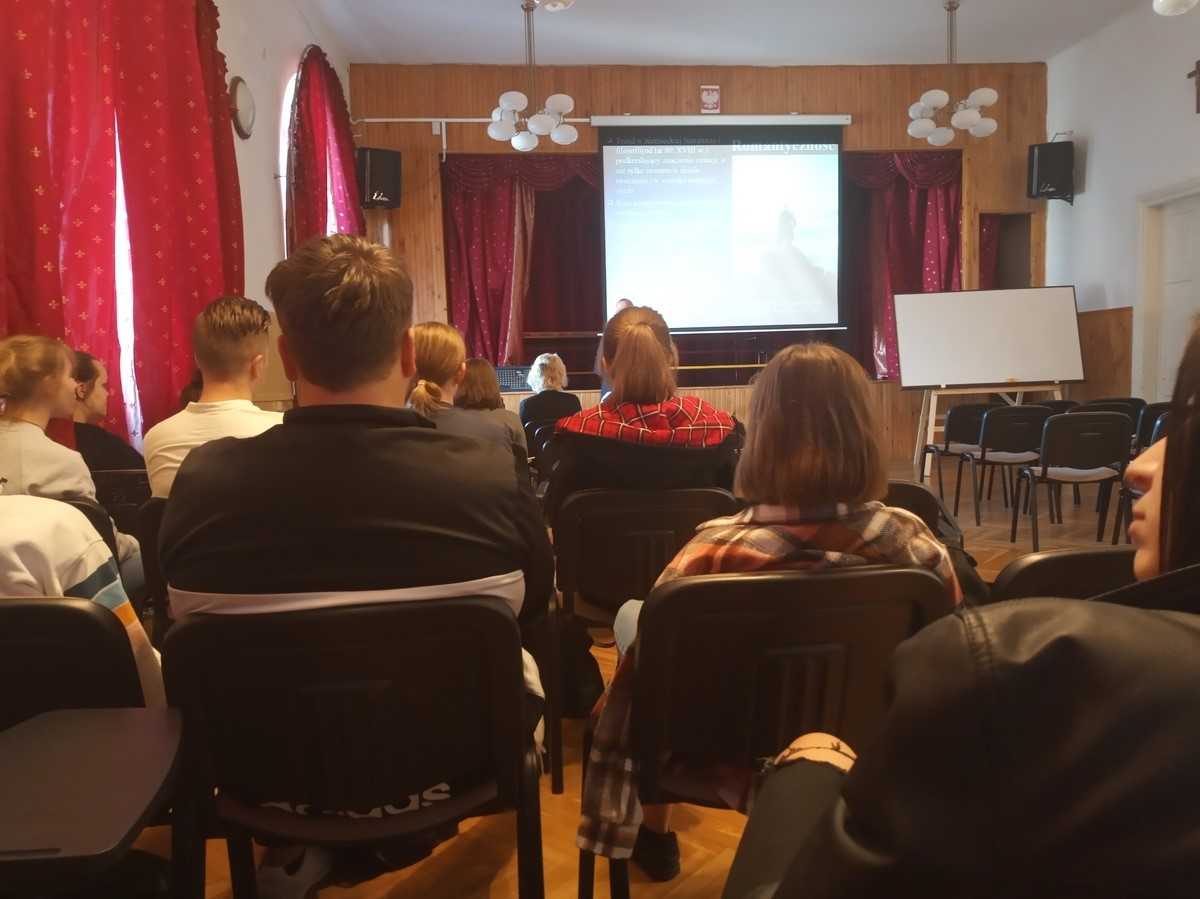
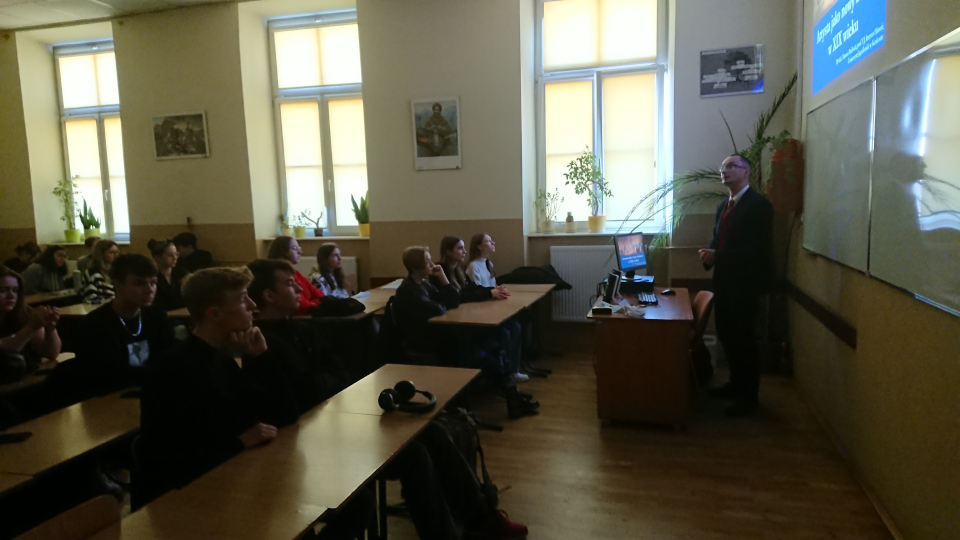
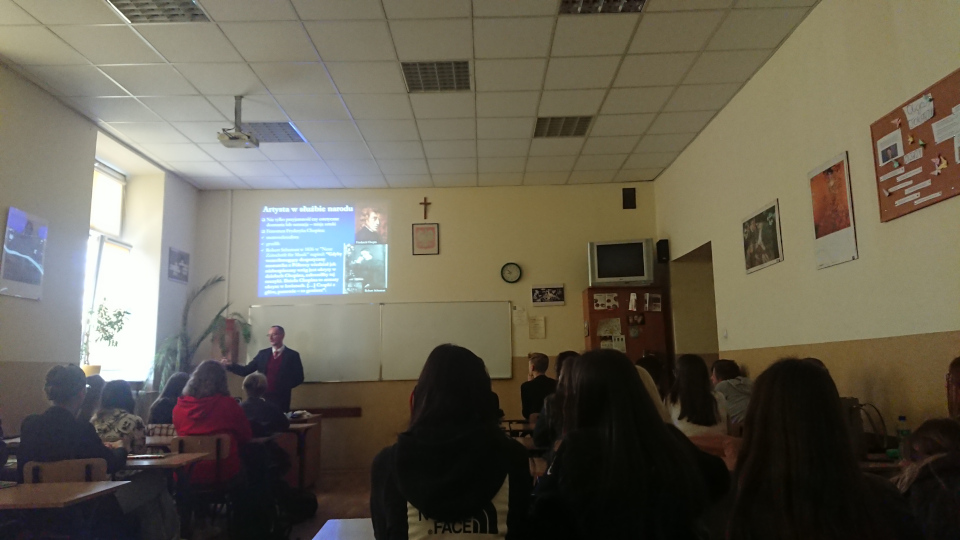
Jana Laslavíková's lecture
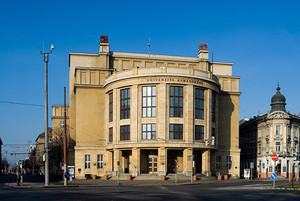 On 9 April, Jana Laslavíková gave a lecture for the doctoral and musicological students of the Comenius Universität.
On 9 April, Jana Laslavíková gave a lecture for the doctoral and musicological students of the Comenius Universität.
The lecture entitled Je dokonané! Nádherné dielo, nová ozdoba nášho krásneho starobylého korunovačného mesta je dokončená! Konštruovanie identity mestských elít na príklade Mestského divadla v Prešporku [Constructing the identity of city elites on the example of the City Theater in Prešporek.].
Jana Laslavíková's lecture
Jana Laslavíková gave an online lecture at Universität für Musik und Darstellende Kunst "Music Culture/s in Central Europe. Lectures and Discussions" event in Vienna on March 18, 2021.
Laslavíková presented her new monograph (Mestské divadlo v Prešporku na sklonku 19. storočia), she highlighted the importance of Bratislava's city theatre [Városi Színház] towards the end of the 19th century, especially as to forming the identity of the city's cultural elite.
The lecture's ("Vollendet! Das prächtige Werk, die neue Zierde unserer schönen altehrwürdigen Krönungsstadt ist vollendet!" Identitätskonstruktionen der städtischen Elite am Beispiel des Stadttheaters in Pressburg) abstract available here.







